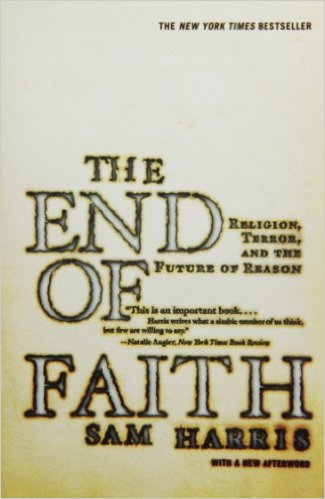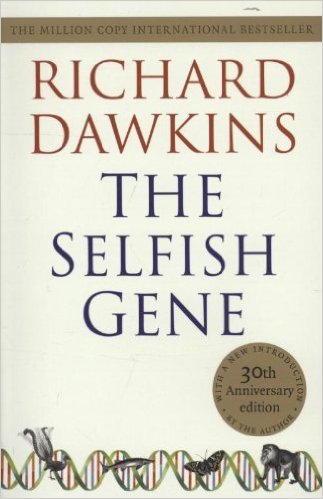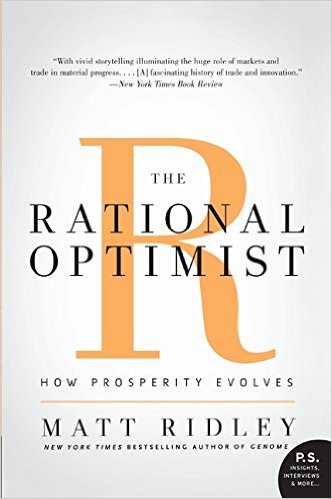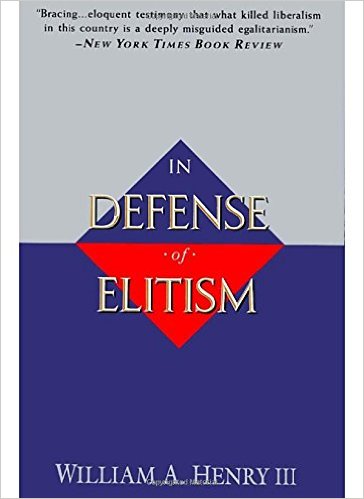
I have always viewed reading as one of the most important activities we human beings engage in. Study after study has confirmed that no single environmental factor can predict success better than education. We know that families who read to their children, fostering reading as a virtue in and of itself, have more successful offspring. And we know that the lifelong pursuit of education isn’t just a trait found within leaders, but more accurately stated, a requirement for leadership.
As General James ‘Mad Dog’ Mattis said is an email to his officers:
“Perhaps if you are in support functions waiting on the warfighters to spell out the specifics of what you are to do, you can avoid the consequences of not reading. Those who must adapt to overcoming an independent enemy’s will are not allowed that luxury.”
Many people have written me over the years asking for book recommendations.
What books have influenced me the most?
What books on self-defense or violence in general, have I found the most helpful?
It’s hard to nail down a list. No lineup is ever complete. For sake of space and emphasis, I limited myself to a short list – ten books; five, which have influenced my thinking in general; and five, which I consider mandatory reading on the subject of violence.
In this post I’ll share five books that changed how I view the world in general – I’ll post specifically on five related to the topic of violence in a future piece.

1) The End of Faith, by Sam Harris
Books are the one thing I collect; but not in the way people collect comics, with every attempt being made to keep them in ‘mint’ condition. I like books that actively alter the way I see things. Through clarity, facts, and force of argument, I am taken on a journey that moves my understanding, opens up perspectives that were previously unknown, and generally enriches my perception of actuality itself. As a writer, Sam has that skill covered. When I run into a book like that, I dog-ear it, highlight it, write notes within the margin of it, and generally mark it up so badly that it would be nearly unreadable to anyone else. I’m not sure any book in my library is as abused as much as the end of faith.
Prior to reading it, I had a respect for reason, logic, and evidence, especially within the areas of my life where I made a living – the Martial Arts. However, I had not fully come to grips with why the pseudo-alternative to reason frequently adopted by so many humans, ‘faith’, wasn’t just ‘not’ a viable alternative, but more importantly, dangerous. Step by step, through the power of words written on a page, Harris makes that case.
I read quite a bit, and my memory is terrible. Asking me to remember where and when I read any one book would be a tough task, even if I had good recollection. I remember exactly where and when I read the end of faith. I was on a seminar tour in Sweden, and I read it within a day. I had spent the better part of the previous decade immersed in Buddhism and various traditions within Hindu Vedanta. Interesting experiences had been had, and interesting questions, at least to me, about the nature of individual identity, the “I”, had sent me on a goose chase through mystical literature, teachers, and practices.
The most accurate word for what I was left with after those ten years is disillusionment. I’d become jaded to the subject. Some of these spiritual ‘teachers’ had relevant questions. But none of them had any answers. Why would they? They lacked the epistemology that made factual answers to empirical questions possible. Harris understood that, and that was my hook into the book.
If having your opinions changed scares you, if engaging in uncomfortable thought experiments isn’t something you are capable of, if expanding your internal universe isn’t something you find fascinating – don’t read this book. Otherwise, put it to the top of your list.
“Man is manifestly not the measure of all things. This universe is shot through with mystery. The very fact of its being, and of our own, is a mystery absolute, and the only miracle worthy of the name. The consciousness that animates us is itself central to this mystery and ground for any experience we may wish to call “spiritual.” No myth needs to be embraced for us to commune with the profundity of our circumstance. No personal God need be worshipped for us to live in awe at the beauty and immensity of creation. No tribal fictions need be rehearsed for us to realize, one fine day, that we do, in fact, love our neighbors, that our happiness is inextricable from their own, and that our interdependence demands that people everywhere be given the opportunity to flourish. The days of our religious identities are clearly numbered. Whether the days of civilization itself are numbered would seem to depend, rather too much, on how soon we realize this.”
― Sam Harris, The End of Faith: Religion, Terror, and the Future of Reason

2) The Selfish Gene, by Richard Dawkins
I love science – now. But in years past my appreciation for its power, its relevance, and its beauty, wasn’t embraced or understood nearly enough.
I remember one friend in particular (he has a bio-engineering degree), saying to me, at a time when I was deep into my woo-woo, bead wearing phase, “Matt, I just wish you would read more science.” And in my narcissistic arrogance (a requirement for woo-woo phases), I dismissed his wise counsel. That changed after reading the end of faith.
A few years of extensive science reading, in particular evolutionary biology, followed. Jerry Coyne, Jared Diamond, Matt Ridley, Frans De Waal, E.O Wilson, Richard Leakey, and Daniel Dennett are all highly recommended, to name a few.
I also really enjoyed a book compiled by John Brockman titled, ‘Intelligent Thought, Science versus the Intelligent Design Movement’, which address one of the last hiding places for mental laziness, the “intelligent designer” fabrication.
I also suggest everyone reads Darwin’s ‘The Origin of Species’, at least once in his or her lifetime. One of my heroes, his thought process alone, revealed through his prose, is more than worth the time.
However, no single science book has influenced my thinking more than Richard Dawkins, ‘The Selfish Gene’. A masterpiece written in 1976, it impacted both the scientific field, and public at large, a rare feat. In the 40 years since its original publication, it’s held up. And the more recent editions which feature arguments made over the decades against its general thesis, such as ‘group selection’, and Dawkins methodical, detective like deconstruction of them, are some of my favorite segments.
I believe that a deeper understanding of our evolutionary origins and the process of natural selection itself, is necessary, if we are going to get closer to the heart of why we human beings experience and do everything we do. And that includes all things related to violence.
“Prediction in a complex world is a chancy business. Every decision that a survival machine takes is a gamble, and it is the business of genes to program brains in advance so that on average they take decisions that pay off. The currency used in the casino of evolution is survival, strictly gene survival, but for many purposes individual survival is a reasonable approximation.”
― Richard Dawkins, The Selfish Gene

3) The Blank Slate, by Steven Pinker
Locke was wrong – life is never born Tabula rasa. That understanding, as uncomfortable as it may make us, or as awkward as the questions its realization spawns may be, is required if we ever want our understanding of human behavior to align closer to reality. The Psychologist David Buss said, “This may be the most important book so far published in the 21st century.” And I don’t think he was too far off.
Every study on human behavior, every piece ever published on psychology, every notion ever thrust into the popular culture regarding child rearing – all of it – which was based on a study that didn’t control for genes – needs to be called into question. Why? Because very broadly speaking, genetic factors tend to account for roughly half of how and why we do what we do. If you disagree with that thesis, you will be taking on the extremely tough, I would say futile, effort of disproving it, given the universe of evidence which show it to be true – but regardless, you will want to have read this book.
“We are all members of the same flawed species. Putting our moral vision into practice means imposing our will on others. The human lust for power and esteem, coupled with its vulnerability to self-deception and self-righteousness, makes that an invitation to a calamity, all the worse when the power is directed at a goal as quixotic as eradicating human self-interest.”
― Steven Pinker, The Blank Slate: The Modern Denial of Human Nature

4) The Rational Optimist, by Matt Ridley
Two things always remain true, said the entertainer Penn Jillette – one, the world is always getting better. Two, the people living at that time think it’s getting worse.
That’s a beautiful fact.
I was born in 1969. I grew up around religious folks who believed we were living in the end times. “Look around” they would say, “The signs that Satan runs this world are everywhere.” As they looked around at the world in the 1970’s, a world that had less poverty than any time in human history, less war than anytime in human history, less disease than anytime in human history, less infant mortality than anytime in human history, and generally provided them with a standard of living that even kings and queens of generations prior would envy, all they could see was decay. The saddest part, many of those people have since died, having lived their entire live with more opportunity and luxury than any of their ancestors, and having never realized it. And they were not, and are not, unusual in the very common and very wrong-headed perspective of our world.
But here is the good news, that is a tragedy born of ignorance we can all avoid.
I was born in 1969:
– When I was born, life spans, worldwide, were shorter.
– When I was 5, people worldwide, were poorer. Poverty has dropped dramatically, and many estimates say that within the next few decades, the kind of severe poverty that was widespread in the 3rd world 40 years ago – will cease to exist.
– When I was 10, people still caught polio. Medical science is light years ahead of where I was in 1979. If any of you became seriously ill, would any of you prefer a hospital from 1979?
– When I was 15, all the libraries in all the earth, contained less information than I can access, right this moment, on the phone in my pocket.
– When I was 20 the water and air of our Nation was much dirtier than it is now.
– When I was 25, the world was more dangerous. In the USA, violent crime is less than half of what it was in 1994.
As a kid growing up in Hollister California in the 1970’s, people died sooner, were poorer, were sicker, were engaged in more wars, and were living in a nation that was far more dangerous then it is now. And I’m just skimming the surface of improvements.
The further back you go, the more dramatic and obvious the trend becomes. My grandfather’s generation wouldn’t be able to imagine the kind of safe, prosperous lifestyle my daughters now enjoy.movie I Am Heath Ledger
Take a moment and just think about this truth. Only a few generations back, most babies that survived birth grew up only to die a few decades later. Diseases wiped out large populations. Most people lived in abject poverty. Clean water was a luxury. Plentiful food was only for the wealthy. And warfare and violence were a daily part of life. Our historical memories are quite short, but the record is quite clear. We are living in a world that is by every standard better than the world any of our ancestors walked in – yet how many of us ever realize it?
This understanding has colored how I view the world. It has effected major decisions in my life, such as whether to have children. And it plays a role in how I view public policy. Knowing this matters. And while the truth will make some people angry (after all not many advocates and fund raisers generate more money and support for their cause by telling people how much better things are getting), I believe it is important you know it too.
One final note, if you haven’t seen the recent Munk debate featuring Matt Ridley and Steven Pinker versus Malcolm Gladwell and Alain de Botton – you’ll want to. It isn’t just the evidence brought forth by Matt and Steven that I think you’ll find compelling, it is also the complete lack thereof by their opponents.
Watch it here: http://www.munkdebates.com/debates/progress
“Some are worse off than they were just a few months or years before. But the vast majority of people are much better fed, much better sheltered, much better entertained, much better protected against disease and much more likely to live to old age than their ancestors have ever been. The availability of almost everything a person could want or need has been going rapidly upwards for 200 years and erratically upwards for 10,000 years before.”
― Matt Ridley, The Rational Optimist

5) In Defense of Elitism, by William A. Henry III
When my wife first saw this small book on our kitchen table, and read the title, she chuckled. I’ll admit, when I first saw it, so did I. I am a working class kid, from a working class family. But I’ve long suspected, for reasons too numerous and detailed to explain in this short article, that the philosophy of ‘egalitarianism’, and the motives of many of its more out spoken advocates, were less than noble. I hoped this book might shine a bit more sunlight on the subject. And Henry’s prose did not disappoint.
The point of this list is to mention books that have had a major impact on how I think about the world in general. And that’s exactly what this book did. You may not agree with everything Henry says in this book, but after reading it, I doubt you will find yourself anything other than more thoughtful about the issues he raises.
I should also add that Henry’s is the only one of these books that I’ve read more than twice. And it won’t surprise me if you do the same. His writing is erudite, sharp witted, and inspiring. He doesn’t just inform with his prose, he teaches.
Here are a few highlighted passages:
“We have foolishly embraced the unexamined notions that everyone is pretty much alike (and, worse, should be), that self-fulfillment is more important than objective achievement, that the common man is always right, that he needs no interpreters or intermediaries to guide his thinking, that a good and just society should be far more concerned with succoring its losers than with honoring and encouraging its winners to achieve more and therefore benefit everyone.”
“To belong proudly to a selected or favored group is morally repellent when something other than learning and achievement serves as the basis for that selected favoritism.”
“The kind of elitists I admire are those who ruthlessly seek out and encourage intelligence and who believe that competition – and, inevitably, some measure of failure – will do more for character than coddling ever can. My kind of elitist does not grade on a curve and is willing to flunk the whole class.”
There you have it, five books that changed how I think.
If some of these titles put you off a bit, remember this – all experienced grapplers recognize that you don’t understand any position, unless you understand both escaping and holding it. In Jiu-Jistu, a working knowledge of any movement requires skill in its application, and skill in the defense against its application. So too with opinion – no one truly understands any viewpoint, unless they understand the arguments made by the opposing side. I’m an atheist. And I am very familiar with the Bible, its history, stories, and traditions. I am vocal advocate for western values. And I have read and studied the Koran, and a good portion of Eastern religion. I voted against George W. Bush, twice. And I don’t think Dick Cheney was a monster. In fact, I could argue his case. I am a gun owner who believes that the right of self-defense (which includes access to the tools needed for self-defense) is critical to our society. And I can tell you what gun control advocates will put forward, as well as which of the arguments I find the strongest. I try and reserve any strong opinions I hold, for topics that I can argue from opposing sides.
Each of us has access to more information than any of our ancestors could ever hope for, yet the temptation to restrict our intake to perspectives we already hold is always present. Remember, challenging your own point of view isn’t just educational, it is pleasurable – assuming you’re sincere, smart, and strong.
You don’t grow without resistance. We learn through challenge and worthy competition. That’s true whether we are talking about skill in fighting, or intellect.






